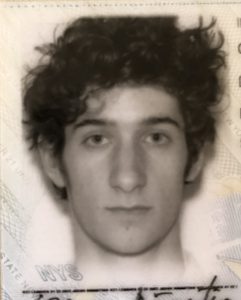
Name: Jason DiMartino
From: Brooklyn, NY
Votes: 0
Motorcycles: A Case for Drivers ed
My
love for motorcycles is my parents’ greatest fear. Despite New York
state laws restricting anyone under 18 years old from driving inside
the five boroughs, I passed my permit test as soon as I was sixteen.
Several months before my 18th birthday I signed up for my Motorcycle
Safety Foundation course that I might go to the DMV for my motorcycle
license sooner. As determined as I am to ride a motorcycle, however,
my parents are equally determined in preventing me.
My
heart pumps the oil and fuel of motorcycles, thus does it run in my
veins. My father raced dirt bikes competitively. My maternal
grandparents migrated 1500 miles to start a new life on their
motorcycle. My family collectively runs two motorcycle education
schools, and carries generations of stories and experience on the
machines. Motorcycles are in my blood—so
why are my parents so terrified of them? The truth is that without
drivers ed, they are terribly dangerous.
A
1979 University of Southern California study analyzed 3,622
motorcycle crash reports. To me, the most notable takeaway in
statistics was that 92% of the riders involved in accidents had no
specialty rider education. 55% had no motorcycle license, and more
than 10% had no driver license at all.1
It is clear that educating your self in the knowledge and skills
required to operate a vehicle on the road will decrease your
likelihood of being involved in an accident and your potential death.
At my MSF course, we took two days to walk thoroughly through the
theory of operating safely on the roads from knowing the limitations
of your own ability and attention to recognizing potentially unique
and dangerous road conditions. We supplemented this theory with
practical operation of the vehicles we intended to use from traffic
etiquette to emergency maneuvers.
I
have educated myself thrice over in driving and riding safety but, as
my parents argue, the issue with motorcycles is ‘the
other people.’ You can never control the mistakes of others. This
is why every driver on the road must enroll in drivers ed. In a
conversation in line at the DMV, a woman looked at me as one looks at
a corpse when I told her I had come for my motorcycle license. Her
sister and brother in law had been killed on their motorcycles at a
stoplight by a driver who just wasn’t
paying attention. Their newborn baby had been orphaned by a simple
bad
driver.
Motorcycles
are a good illustration of the necessity of drivers ed, because
a rider’s
margin of error must be so much smaller. If everyone on the road took
it upon themselves to practice their spacial awareness and road
knowledge; to practice the operation of their own vehicle, the number
of deaths would simply go down. If everyone went to drivers ed
courses and learned to understand that they share the road with men
and women who don’t have airbags and seatbelts the roads would be
safer for everyone.